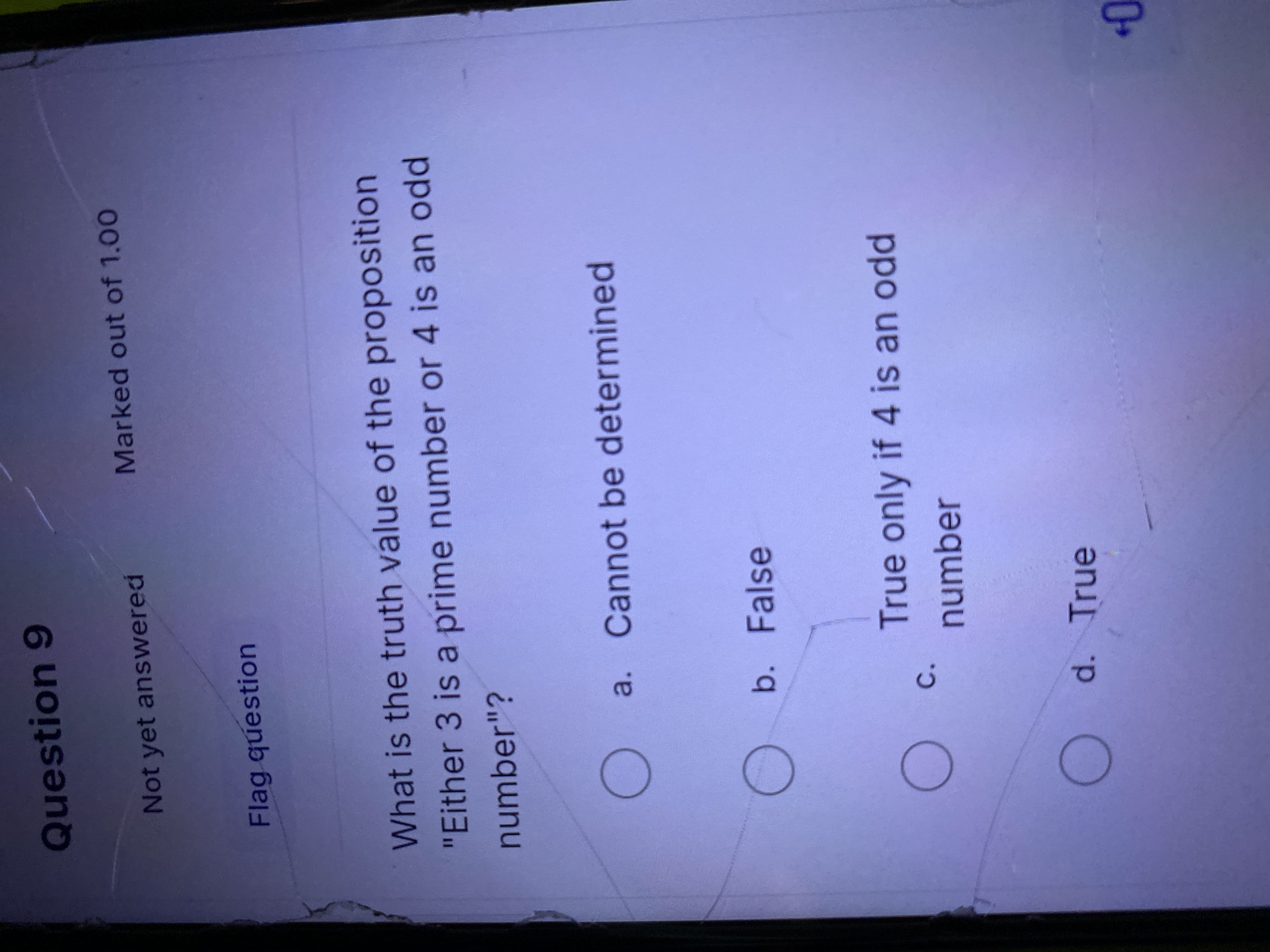What is the truth value of the proposition 'Either 3 is a prime number or 4 is an odd number'?

Understand the Problem
The question is asking for the truth value of a logical proposition involving the statements about the numbers 3 and 4, specifically if 3 is a prime number or if 4 is an odd number. We will evaluate the truth of each part of the statement.
Answer
True
Answer for screen readers
The truth value of the proposition is True.
Steps to Solve
- Evaluate the first statement: "3 is a prime number"
The statement claims that 3 is a prime number. A prime number is defined as a natural number greater than 1 that has no positive divisors other than 1 and itself. Since 3 can only be divided by 1 and 3, this statement is true.
- Evaluate the second statement: "4 is an odd number"
An odd number is defined as any integer that cannot be divided evenly by 2. Since 4 is divisible by 2, it is classified as an even number, making this statement false.
- Determine the truth value of the entire proposition
The logical connector in this proposition is "or". In logical terms, a disjunction (A or B) is true if at least one statement is true. Since the first statement ("3 is a prime number") is true, the entire expression "Either 3 is a prime number or 4 is an odd number" is true, despite the second statement being false.
The truth value of the proposition is True.
More Information
In logic, an "or" statement is true if at least one of its components is true. Here, since the first component is true, the entire statement holds true.
Tips
- Confusing "or" with "and": Remember that "or" only requires one true statement for the entire proposition to be true.
- Forgetting to check the definitions: Always verify the definitions of "prime" and "odd" to avoid errors.
AI-generated content may contain errors. Please verify critical information